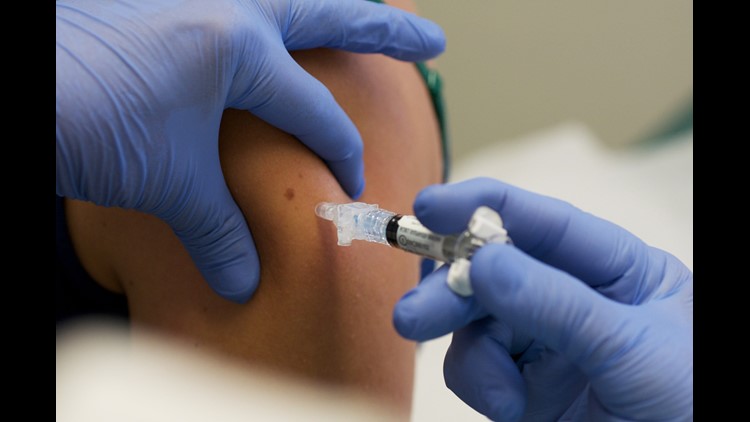The vaccine for Human Papilloma Virus, according to recent studies, is working better than expected, even though vaccination rates in both Connecticut and the country are stagnating well below the target rate. To increase those rates, health experts are recommending doctors urge parents to get the vaccine for their pre-teens and teenagers as part of a back-to-school checkup.
“It’s the most common sexually transmitted infection, so up to 80 percent of people at some point in their life, if they’ve been sexually active, have been exposed to it or infected,” said Dr. Sangini Sheth, an Assistant Professor of Obstetrics, Gynecology and Reproductive Sciences at Yale New Haven Hospital.
HPV infection, and the pre-cancerous cells it can produce, are a proven pre-cursor to a number of cancers in both man and women that tend to develop later in life.
“We’ve been doing everything possible because there are lots of cancers we can’t prevent and this one is one we can,” said Dr. Sheth.
She said vaccination rates, in both Connecticut and nationwide, are around 50 percent, when the goal is to get them closer to 80 percent. Nevertheless, a recent study publish in the journal “The Lancet” in June found the vaccine is working so well at even these lower rates that it’s beginning to protect even non-vaccinated people from HPV-related infections, thanks to a small amount of herd immunity. The authors of the study said it’s possible that one of the HPV-related cancers – cervical cancer – could someday be eliminated as a public health concern if vaccination rates get high enough.
That is still a ways off, for a number of reasons. Dr. Sheth said clinicians in Connecticut have been doing a great job of getting the word out to parents, there are still some hurdles that need to be overcome. One is the awkwardness that can stem from giving a vaccine to teens and pre-teens that is meant to guard against a sexually transmitted infection.
“The doctors might hesitate because they’re nervous they’re going to upset the child or upset the parent, or bringing up topics that we really don’t want to be thinking about, namely kind of circling around this idea of sex,” she said.
The vaccine is now recommended for nearly everyone up through the age of 26, but Dr. Sheth said age 11 or 12 is the optimal time to receive the vaccine.
“The earlier the vaccine is given the more robust the response, the body’s response is going to be,” Dr. Sheth said.
She also said that many accusations that the vaccine causes rare diseases or fertility issues later in life haven’t been borne out in the real world, and added that international studies verified the vaccine’s safety while it was still in the trial stage, and the vaccine’s safety record has been monitored throughout the 12-plus years that it’s been widely available. She said the vaccine has been so successful that it’s now being recommended as a series of only two shots, down from three initially, and if these results continue, researchers may conclude that only one dose provides effective coverage.



